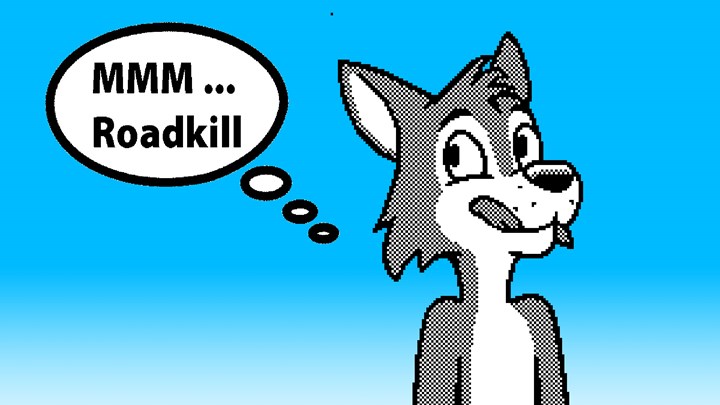
by Mark Chesnut - Thursday, July 24, 2025

We reported in March how Colorado’s Wolf Depredation Compensation Fund, which was established to compensate landowners and agricultural producers for wolf depredation of livestock and working animals, was nearly bankrupted after compensating just two ranchers for their losses.
With wolf problems continuing to mount, however, wildlife officials in the Centennial State are looking for other answers to the problem. And one such answer might be feeding road-killed wildlife to “problem” wolves, based on a conversation at a recent Colorado Parks & Wildlife (CPW) Commission meeting.
As background, Coloradans voted by a narrow margin in 2020 to reintroduce wolves to the state. Ten wolves were released in Summit and Grand counties in December 2023. In January 2025, CPW released another 15 wolves that were captured in British Columbia and relocated to Pitkin and Eagle counties.
The National Rifle Association and this NRA hunting news website warned of the possible negative long-term impact of a wolf introduction since the plan was hatched. In fact, the NRA Institute for Legislative Action (NRA-ILA) partnered with other hunting and wildlife conservation groups in an initiative to stop the forced introduction of gray wolves to Colorado.
With depredation problems continuing, CPW Director Jeff Davis, at the June meeting of the CPW Commission, discussed feeding roadkill wildlife to “problem” wolves to take the predators’ focus off cows, calves and sheep.
“The diversionary feeding is something that, when we talked with our counterparts in other states, has been shown to be effective—and we have considered that,” Davis said in a conversation about a “problem” pack during the recorded meeting, which can be viewed here. “We continue to monitor those animals. When I say that, and we see movement that seems to indicate that those animals are following the elk herd, then do we intervene with that in a manner that might naturally hold them from moving along with that elk herd, for example?”
For his part, Commission Chairman Dallas May voiced his wholehearted support for feeding roadkill to wolves in an effort to slow depredation of livestock.
“I’m all for the supplemental feeding of wild game, roadkill or whatever it would be to deflect this and to support those packs so that they don’t have to go out and survive on calves, they don’t have to survive unnaturally,” May said.
Incidentally, one Colorado wolf recently became such a problem for ranchers that CPW personnel finally had to kill it to stop the carnage. Because the young male wolf (wolf 2405) met the conditions of “chronic depredation” with “three or more depredation events caused by the same wolf or wolves within a 30-day period, provided there is clear and convincing evidence that at least one of the depredation events was caused by a wolf or wolves,” biologists called the wolf into rifle range with a predator call and killed it.
“Consistent with the incremental approach discussed in Administrative Directive OW-15, the Division is now evaluating whether lethally removing wolf 2405 achieves the goal of changing the pack’s behavior,” the after-action report stated.
Ultimately, the release of the wolves in Colorado has become a tremendous headache for both ranchers and wildlife managers—just as expected—without providing much benefit. It’s doubtful that putting state resources to work collecting roadkill to feed the wolves is going to change the situation much, but wildlife managers seem to be scrambling to find some way to keep wolves from doing what they do best: catching the easiest food possible for their next meal.
About the Author
Freelance writer and editor Mark Chesnut is the owner/editorial director at Red Setter Communications LLC in Jenks, Okla. An avid hunter, shooter and field-trialer, he has been covering Second Amendment issues and politics on a near-daily basis for over 25 years.
E-mail your comments/questions about this site to:
[email protected]
Proudly supported by The NRA Foundation and Friends of NRA fundraising.
